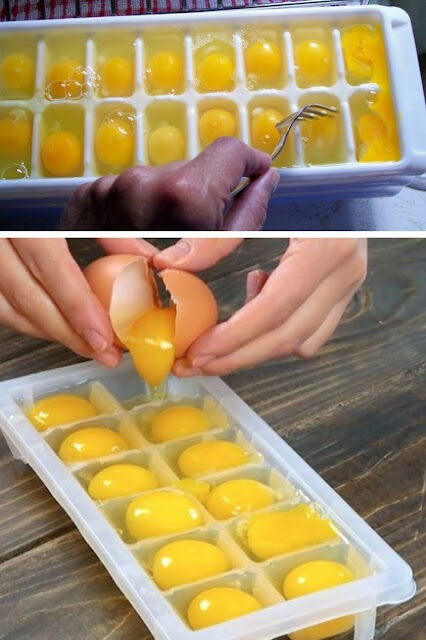ADVERTISEMENT
Now, let’s talk about the benefits of consuming eggs. Eggs are a great source of important nutrients such as vitamin D, which is vital for bone health and immune function. They also contain vitamin B12, which is essential for DNA production and nervous system function. Another important nutrient found in eggs is vitamin A, which is crucial for vision, immune system, and reproduction. Eggs are also rich in iron, a nutrient necessary for oxygen transport and red blood cell production. Lastly, eggs contain zinc, which is critical for immune function, wound healing, and DNA synthesis.
To freeze eggs, follow these simple steps:
Step 1: Preparing Whole Eggs
Gently whisk the whole eggs, avoiding vigorous whisking to prevent excessive air incorporation, which can affect the texture upon defrosting.
Pour the mixture into freezer-safe containers. You can use ice cube trays for convenient individual portions.
Once frozen, transfer the egg cubes to an airtight freezer bag for easy portioning later.
It’s important to note that maintaining a balanced diet that incorporates eggs is crucial to avoid deficiencies or excesses of these nutrients. Excessive egg or vitamin consumption can have different effects on individual health and dietary factors, so it’s important to be mindful of your overall diet.
In the words of Barbara O’Neill, a renowned nutritionist and educator, “Balancing nutrients through mindful consumption of eggs within a varied diet is essential for optimal health and wellbeing.”
So don’t let those excess eggs go to waste! Freeze them and enjoy a waste-free cooking experience in your kitchen.
